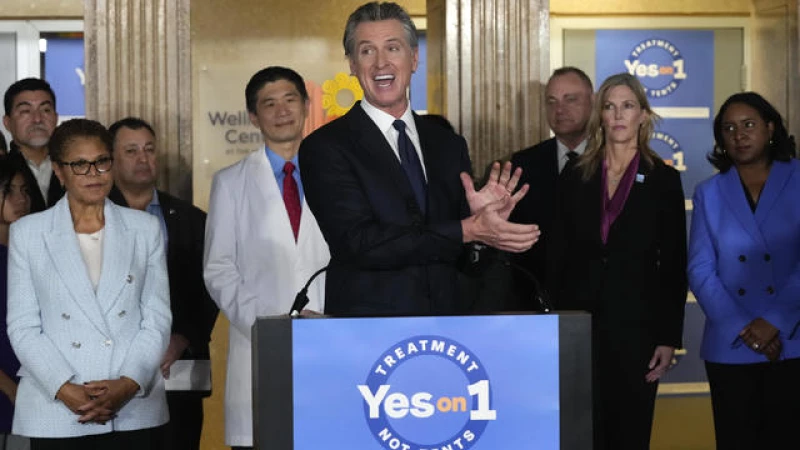California voters have approved a statewide ballot measure aimed at transforming the state's mental health care system. Proposition 1, which includes the issuance of nearly $6.4 billion in bonds, received the green light after more than two weeks of vote tallying.
Proposition 1 has garnered strong support from Governor Gavin Newsom and various Southland elected officials such as Los Angeles Mayor Karen Bass and county Supervisors Hilda Solis and Janice Hahn. Advocates believe the measure will significantly enhance access to treatment beds and supportive housing. However, critics argue that it may lead to a reduction in funding for existing successful programs.
As a result of the measure's approval, county officials throughout California will need to reallocate funds to establish drug and mental health treatment beds and improve their response to the homelessness crisis prevalent in many major cities.
Governor Newsom's office has outlined plans for Proposition 1, which include the creation of 11,150 behavioral health treatment beds, housing opportunities, and 26,700 outpatient treatment slots statewide. A substantial portion of the bond measure, approximately $1 billion, is designated specifically for veterans.
"This is the biggest change in decades in how California tackles homelessness, and a victory for doing things radically different," Gov. Newsom said in a statement. "Now, counties and local officials must match the ambition of California voters. This historic reform will only succeed if we all kick into action immediately – state government and local leaders, together."
What happens now that Prop. 1 passed?
Since Proposition 1 is a bond measure, there will be no immediate impact on taxes. However, California is now slated to take on the new debt proposed in the measure — $6.4 billion — and pay it back with interest.
Additionally, counties will now be required to change some of their mental health care and drug or alcohol treatment services, shifting some of the focus to housing and personalized support services.
The money for Proposition 1 will come in two methods, primarily the issuance of $6.38 billion in bonds and also through a re-apportionment of funds generated by the Mental Health Services Act, which was passed by California voters in 2004, and it imposed a 1% income tax on people earning more than $1 million per year. Funds from that measure are largely directed to counties for mental health programs, but Proposition 1 would give the state control over much of the funding.
The Associated Press suggests that annual revenue from the tax runs between $2 billion and $3 billion a year, providing one-third of the state's mental health budget.
States will now have to allocate approximately two-thirds of the funds towards housing and homeless outreach initiatives for individuals dealing with severe mental health issues or substance abuse disorders.
Moreover, the new legislation permits California to secure over $6 billion in loans to construct 4,350 housing units, with half of them designated for veterans. This plan will also introduce close to 7,000 additional mental health and addiction treatment beds.







